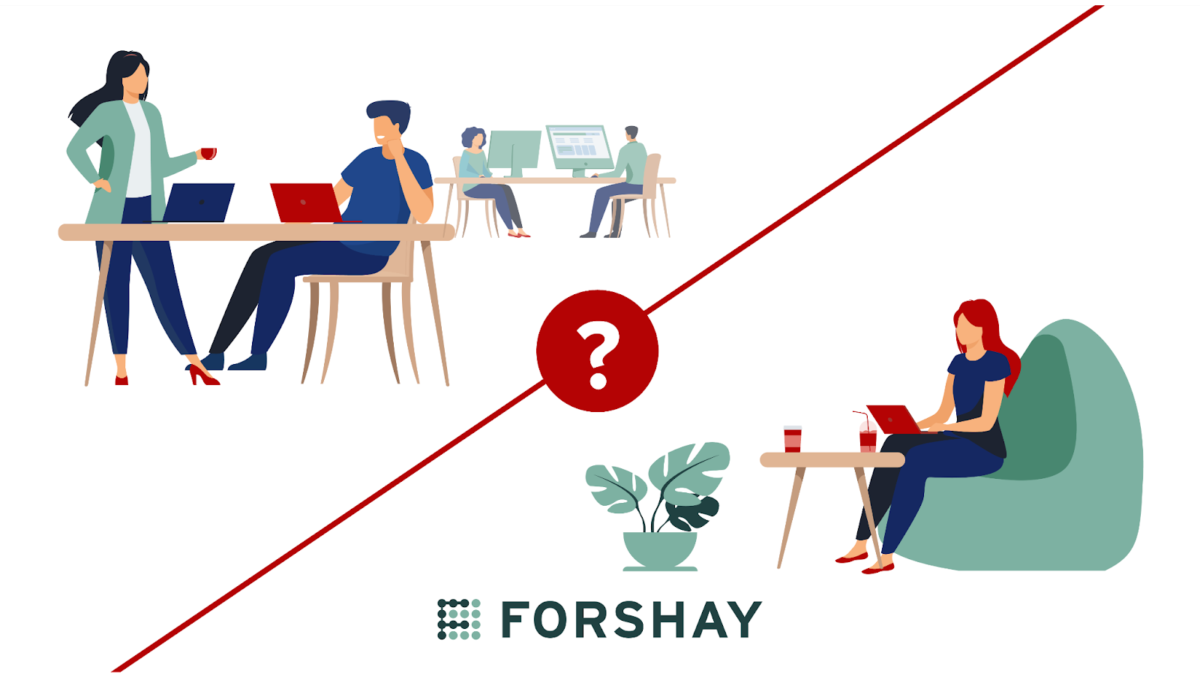In the beforetimes, most of us operated under a set of default beliefs about the “ideal worker.” The person who showed up every day, worked long hours, was always available, and didn’t bring their personal life into their professional life. Many also subscribed to the old-fashioned notion that your value as a person in society is your work. The kind of work you do. How hard you work. How many hours you put in. As we know, the default is the easiest. It’s much harder to question the silent (or not so silent) rules and expectations. But as Jennifer Aaker, a professor at Stanford Business School taught me, if we want to be creative, innovative, and evolve as humans, try reversing the rules.
So, what was the rule and expectation pre-Covid? That if you show up at work, things will just (magically) happen. Innovation will happen. Results will happen. Relationships will happen. We defaulted (tbh). But, being forced to change (in this case, rapidly) opens us to rethink our priorities, redefine what it means to “go to work,” and to switch from “how we normally do it” to “what’s the smartest way for this to be done?” But the same idea applies in the new ways of work…If we believe the rule is “Remote work is awesome” then we also have to ask “How is it not awesome?”
Here are some questions we’ve been asking ourselves lately.
HOW DO WE MAKE “GOING INTO THE OFFICE” WORTH IT?
Real talk. If companies expect people to go into the office to do email, they’re not going to be happy about it. Employees want to know what the tradeoff is to their commute. So, how do you take the goals of an off-site and bring them on-site? Our thoughts are that you can turn office time into team time. This is your chance to build relationships, solve problems together in person, work on your culture, create a sense of belonging and mutual respect for one another. Can’t default here…we need to design intentionally.
WHO NEEDS TO GO INTO THE OFFICE?
Should companies choose certain departments or roles to go into the office? How could a company use on-site work to create cross-sectional collaboration? Does the engineering team go in when marketing goes in? Or could it be project-based teams from several different departments who come together to collaborate? How do you make sure your remote workers have chances to engage with on-site workers? How do you help people feel included and that they have opportunity for growth and visibility if they work from home?
WHICH IS MORE IMPORTANT? RESULTS OR PUTTING IN THE TIME?
Okay, admittedly, this is a frustrating question as it seems so obvious. But patterns do not shift easily, and often processes (long hours, billable hours, visibility) can be a crutch instead of the outcomes (creativity, innovation, learning, growth). Remote work forces us to re-evaluate where we put our energy, and what we’re measuring after all. Process still matters. As do results. As employers and employees, how do we widen the aperture of what we’re measuring to ensure we’re looking holistically?
HOW DO WE SHIFT OUR THINKING TO A DIFFERENT MODEL?
Most of us have a hard time ditching the inner voice of “but this is how I worked to become successful” or “this is how I led my team before and it worked great.” Ironically, successful leaders would never use that same “let’s keep doing it the same way” thinking for their products or services, but they can accidentally default into this thinking for their working norms.
We have to banish our old patterns, and reconsider them based on behavioral science plus our lived experience. What worked well while your employees worked remotely? What didn’t? How could it be better? How do we create a workplace by design rather than by default? Keep questioning. Ask everyone for input using Balloon, and throw in a funny question (like the funniest thing they saw/heard/did during a video call) to keep the creativity flowing. Most importantly, keep that curious and open perspective that allows you to readjust as you learn. We are all on this journey together.
IF WE COULD TIME TRAVEL…
What would we find out about the future of work? We stay centered on what will remain true and important. We’re interdependent. The human need to feel safe, be heard, be creative, have fun aren’t changing. We want to be treated fairly, with kindness and generosity. We want choice. We want purpose. We want to grow together. And we want it to be done equitably. No small task. But one worth striving for. In the office or out of it.
How are you designing the Future of Work for your team?
We’ll be hosting a roundtable discussion on this topic, and if you’d like to be included please email info@Forshay.com as there are limited seats to facilitate a deeper discussion.







